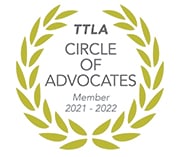Brain injuries, especially traumatic ones, have the potential to leave a huge impact on your brain’s health. It can affect many things, from your emotional state to physical pain. It can even impact your memory.
But in what ways do these damages manifest? What troubles should you expect when handling TBIs and memory loss?
What affects memory?
Model Systems Knowledge Translation Center examines the impact of brain injuries on memory. The extent of damage and type of effects you face depend on several things. First, the severity of the injury. Second, the location of the injury. Third, whether you are facing multiple points of injury on the brain.
For most people, short term memory suffers the worst of the damage. Your brain may also struggle to translate short term into long term memory. This means you cannot easily recall things like dates, times, places or where you put certain items.
Issues arising from short term memory damage
Short term memory damage can result in physical issues, too. For example, you may forget to take important medication at the right time. You might forget about crucial appointments. Forgetfulness can also lead to an increased chance of accidents, whether at home or at work.
Memory loss often brings on stress, too. In a vicious cycle, stress can also worsen memory problems. This means you may end up aggravating your memory damage by feeling upset over it.
Unfortunately, the recovery process for memory loss is long and difficult. It can cost a lot of money, too. This is why many TBI victims choose to seek compensation. You may want to contact a legal professional if you wish to do the same.














